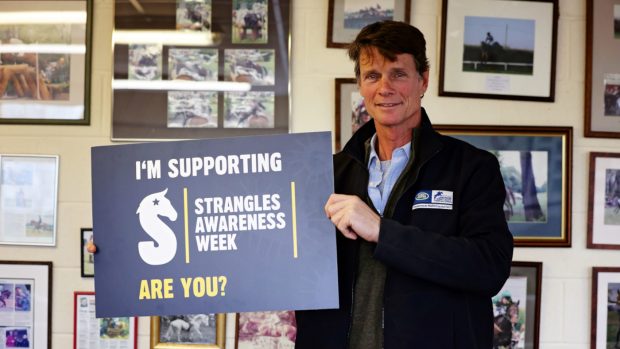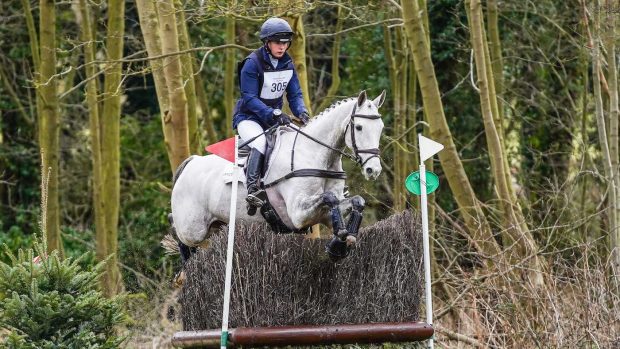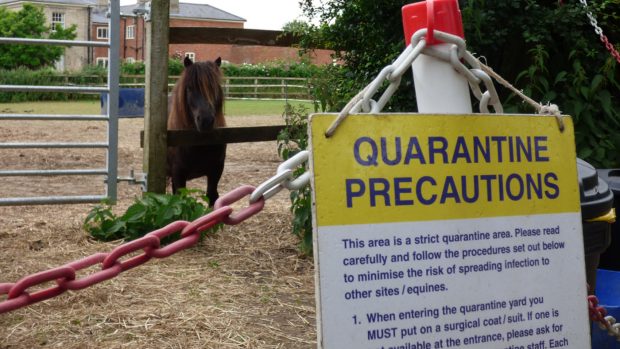Intervet UK Ltd’s strangles vaccine — the only product of its kind in the country — has been withdrawn from the European market with immediate effect owing to a “quality control issue”.
The vaccine, which is called Equilis StrepE, was launched in a blaze of publicity in November 2004, since which time there have been 150,000 doses administered. Intervet’s general manager, Jim Hungerford, told H&H the vaccine is not expected to return to suppliers for two or three months.
With no alternative on the market, this means horse owners will be unable to vaccinate their animals against the infectious disease until spring at the earliest. Equines due for a booster shot in the next few months will have to begin the course again. Intervet is planning to provide some form of compensation, but details are yet to be released.
Intervet voluntarily recalled two batches of the vaccine — the entire stock for the UK — in December after its antigen level was found to have dropped marginally below the standard set by the European Medicines Agency (EMA). Antigens stimulate the production of the antibodies needed to fight the bacteria that causes strangles.
Mr Hungerford said that subsequent discussions with the EMA led to the decision to withdraw the vaccine from the whole of Europe last week. But he stressed there was no need for owners to panic.
“Any horse which was injected with vaccine from the withdrawn stock prior to the recall will be fully inoculated against strangles,” he said. “The withdrawal had nothing to do with the vaccine’s safety or efficacy, but rather the stringent guidelines we work to.”
Vets contacted by H&H reinforced the need for calm. The Animal Health Trust’s Richard Newton stated that good husbandry was crucial in the fight against the disease.
“The withdrawal is an annoyance,” he said, “but looking at it pragmatically, we didn’t even have a vaccine a few years ago. The vaccine was never intended to lull owners into a false sense of security — people must always pay attention to biosecurity and yard hygiene.”
Most owners who opt to have their horses vaccinated against strangles do so on a six-monthly basis, with those animals deemed by vets to be in a high-risk situation — in a large yard with lots of newcomers or in an area where strangles is a persistent problem — receiving booster shots every three months.
In January last year, Intervet gave an £8,700 goodwill payment to a Kent yard after 19 horses became infected with strangles, despite being vaccinated against the disease.
Although several vets contacted by H&H were unaware that the vaccine had been withdrawn, Mr Hungerford said all vets who had purchased the product were notified by letter in December and instructed to return any spare vaccine to their suppliers.
- This news report was first published in Horse & Hound (18 January, ’07)




